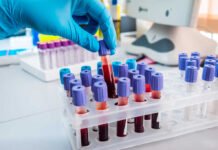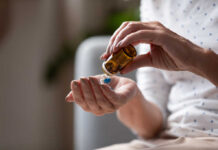
That “just one more drink” bravado of your 20s has long since lost its luster. Where a few too many once left you craving greasy brunch and a lazy Sunday, the same transgressions now punish with skull-splitting headaches and days of malaise.
Is your body conspiring against cheeky weeknight wine or the occasional overindulged wedding weekend? Sadly, the creeping scourge of age-amplified hangovers is very real.
The Toxic Truth
A hangover is a withdrawal state as your body works overtime to clear the toxic byproducts of alcohol metabolism. Chief among these troublemakers is acetaldehyde, a noxious compound that disrupts cellular function, incites inflammation, and generally makes you feel like roadkill.
In our invincible youth, a robust arsenal of enzymes and antioxidants swiftly neutralize acetaldehyde and its inflammatory posse. But with each passing year, this detoxification machinery grows a bit rustier, a bit less efficient.
The result? Acetaldehyde lingers longer, amplifying the agonizing symptoms of overindulgence.
Dwindling Defenses
Compounding the acetaldehyde backup is an age-related decline in our cellular powerhouses: the mitochondria. These tiny organelles not only generate energy, but help orchestrate our response to toxic insults.
As mitochondrial function falters with age, so too does our ability to bounce back from alcohol’s ravages. Oxidative stress, a hallmark of both aging and hangovers, further drags down our energy and resilience reserves.
Sleep Sabotage
Alcohol’s final parting gift is a thoroughly thrashed sleep cycle. While a nightcap can hasten the sandman’s arrival, it swiftly turns on you, fracturing vital REM and slow-wave sleep.
This renders your slumber far less restorative, compounding daytime fatigue and brain fog. As sleep architecture already erodes with age, adding alcohol to the mix is a recipe for morning misery.
Bolstering Resilience
But before you resign yourself to a future of Shirley Temples, know that proactive steps can fortify your body against ethanol’s entropic toll.
Upping your intake of colorful fruits and vegetables infuses your cells with a potent blend of phytochemicals and antioxidants. These plant allies enhance detoxification, quell inflammation, and recharge mitochondria for faster recovery.
Prioritizing nutrient-dense, minimally processed food also lightens your liver’s workload, freeing up precious resources for acetaldehyde cleanup duty. And imbibing ample water before, during, and after drinks is downright essential for offsetting alcohol’s dehydrating effects.
Respecting Rhythms
Fascinatingly, even the timing of your tipples can influence hangover severity. Drinking within a few hours of your usual bedtime disrupts the intricate dance of your circadian rhythm, intensifying grogginess and gastrointestinal distress the next day.
Giving your body ample buffer time to metabolize alcohol before hitting the hay can make a world of difference in how you greet the morning. Likewise, syncing meals and imbibing to your natural daily rhythms may support more efficient processing and recovery.
Aging is an inescapable ally to the hangover, gradually blunting our biological defenses against alcohol’s aftershocks. But by nourishing our cells, honoring our circadian cues, and perhaps savoring an extra glass of water between rounds, we can absolutely take the edge off the morning after.
The key is working with, not against, the intricate systems that keep us resilient in the face of life’s assorted vices and pleasures. Armed with a bit of biological awareness and self-care savvy, you can still toast the good times ― just with a side of mindfulness to match your maturity.


















